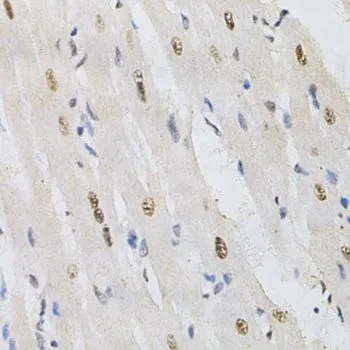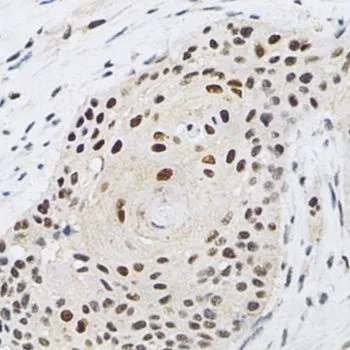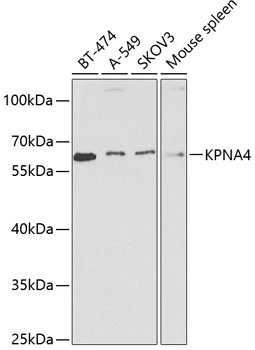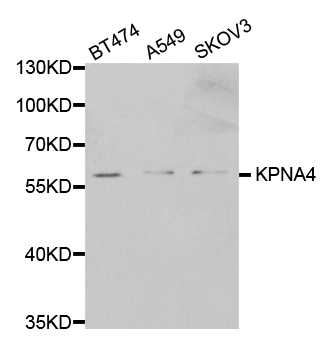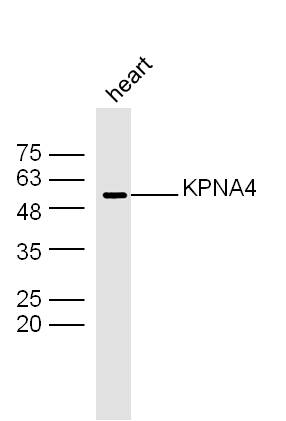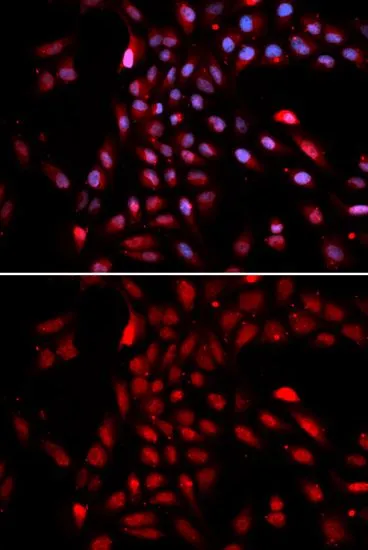
ICC/IF analysis of U2OS cells using GTX54358 KPNA4 antibody. Blue : DAPI
KPNA4 antibody
GTX54358
ApplicationsImmunoFluorescence, Western Blot, ImmunoCytoChemistry, ImmunoHistoChemistry, ImmunoHistoChemistry Paraffin
Product group Antibodies
ReactivityHuman, Mouse, Rat
TargetKPNA4
Overview
- SupplierGeneTex
- Product NameKPNA4 antibody
- Delivery Days Customer7
- Application Supplier NoteWB: 1:500 - 1:2000. ICC/IF: 1:50 - 1:200. IHC-P: 1:50 - 1:200. *Optimal dilutions/concentrations should be determined by the researcher.Not tested in other applications.
- ApplicationsImmunoFluorescence, Western Blot, ImmunoCytoChemistry, ImmunoHistoChemistry, ImmunoHistoChemistry Paraffin
- CertificationResearch Use Only
- ClonalityPolyclonal
- ConjugateUnconjugated
- Gene ID3840
- Target nameKPNA4
- Target descriptionkaryopherin subunit alpha 4
- Target synonymsIPOA3, QIP1, SRP3, importin subunit alpha-3, importin alpha Q1, importin subunit alpha-4, karyopherin alpha 4 (importin alpha 3)
- HostRabbit
- IsotypeIgG
- Protein IDO00629
- Protein NameImportin subunit alpha-3
- Scientific DescriptionThe nuclear import of karyophilic proteins is directed by short amino acid sequences termed nuclear localization signals (NLSs). Karyopherins, or importins, are cytoplasmic proteins that recognize NLSs and dock NLS-containing proteins to the nuclear pore complex. The protein encoded by this gene shares the sequence similarity with Xenopus importin-alpha and Saccharomyces cerevisiae Srp1. This protein is found to interact with the NLSs of DNA helicase Q1 and SV40 T antigen. [provided by RefSeq, Jul 2008]
- ReactivityHuman, Mouse, Rat
- Storage Instruction-20°C or -80°C,2°C to 8°C
- UNSPSC41116161

